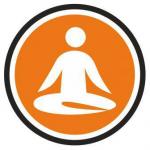Foundation of Practical Methods
1. Relaxation
Relaxation gives us possibilities to really make our body alive or to put it differently, to release different blockages and tensions in the body. This is a basic factor for understanding practical methods. The ability to relax means to create a reverse internal effort directed at the physical body and is not that physical equivalent of relaxation that usually spread across sports and fitness.
2. Principals
After the main blocks and tensions in the body are released through the means of relaxation, one can come to understanding of practical methods, connected to principals. Practical methods connected to principals imply constant formation of internal effort directed on understanding of condition of how and by the means of what one should develop mind and body.
It is important to come to building oneself up through understanding firstly of the meaning of the physical form. For example, it is important to learn to centre own weight and to shift it correctly, correctly use feet during movement , correctly distribute physical effort in the hands, to correctly control the top of the head, to be able to concentrate, to form a correct attitude towards internal sensations, etc.
Forming actions in accordance to principals allows a human to come to restoring the correct work of physiological, energetic, and mental systems of the organism. If one does not work on these questions consciously then in the process of any activity the body will lose proportion in development, energy may uncontrollably move around the body and consciousness will not obey the internal grip.
If a human does not control oneself in the process of life for example, over – loading one group of muscles more in comparison to the other, blocking supply of a fair amount of energy to the head ( not controlling its position or by sitting incorrectly), then one becomes dependant on the quality that one has and not one that one needs: before the time when processes of growth and development become natural, it will be necessary to develop a constant effort for detecting the quality of following of the given principals.
3. Laws
After a human has found out principals, one gains an opportunity to find out the laws of body transformation. The contents, parts of the structure of our body – muscles, bones, tendons, etc. – have own specific laws of development that are important to understand. But to start to understand these laws is only possible after a human achieves energetic wholeness.
4. Breathing
Here, in this case breathing is understood not so much as the physiological breathing but as the condition of consumption of external energy supplied into the person together with breath. Breathing is the main way of filling our body, thus a real possibility of consuming the external energy appears only after comprehending previous levels. It is impossible to develop correct breathing if the body is closed and the necessary conditions for the external energy consumption are not created. Undeveloped breath also creates excessive strain on the heart.
5. Rhythm
Entering this level of understanding of own actions allows not to depend on the routines of constantly controlled actions and to correspond to true nature of human existence in every moment of time. At this stage a human already achieved internal understanding of what and how one should do and one is not bothered by any doing of bad quality.
6. Space
This aspect requires understanding of effort that comes from space to human, also of correspondence of own life activity with the place where a human lives or resides. This level is defined by a big amount of parameters and it is quite complicated in understanding because it is formed from many external causes.
For example, a concept of energetic responsibility for own action relates to the question of cooperation with space. If to get under the influence of space, one can get under the influence of negative emotions and reaction that worsens the problems directly connected with human nature. If that happens frequently the negative reaction is not only an unconscious experience of the human himself, but also gives the human a temporary state of fullness that follows after any type of reaction. Thus, if the human thinks or talks about someone badly, and also if one does unnecessary uncontrolled actions, then this defines ones incorrect cooperation with space as a place of inhabitancy or active socializing environment.
A correct internal position in relation to space should be built naturally and gradually – first of all by the means of working on oneself and not by the means of acceptance of some uncomprehended external moral principles.
7. Centralization
To recognise the task levels of the listed above the practitioner needs to learn to tune the work of own brain that is in itself the development of centralisation without which we cannot develop concentration. As development of centralization happens a return to principals of practical methods happens as well but already through prisms of concentration.
19 february 2011


